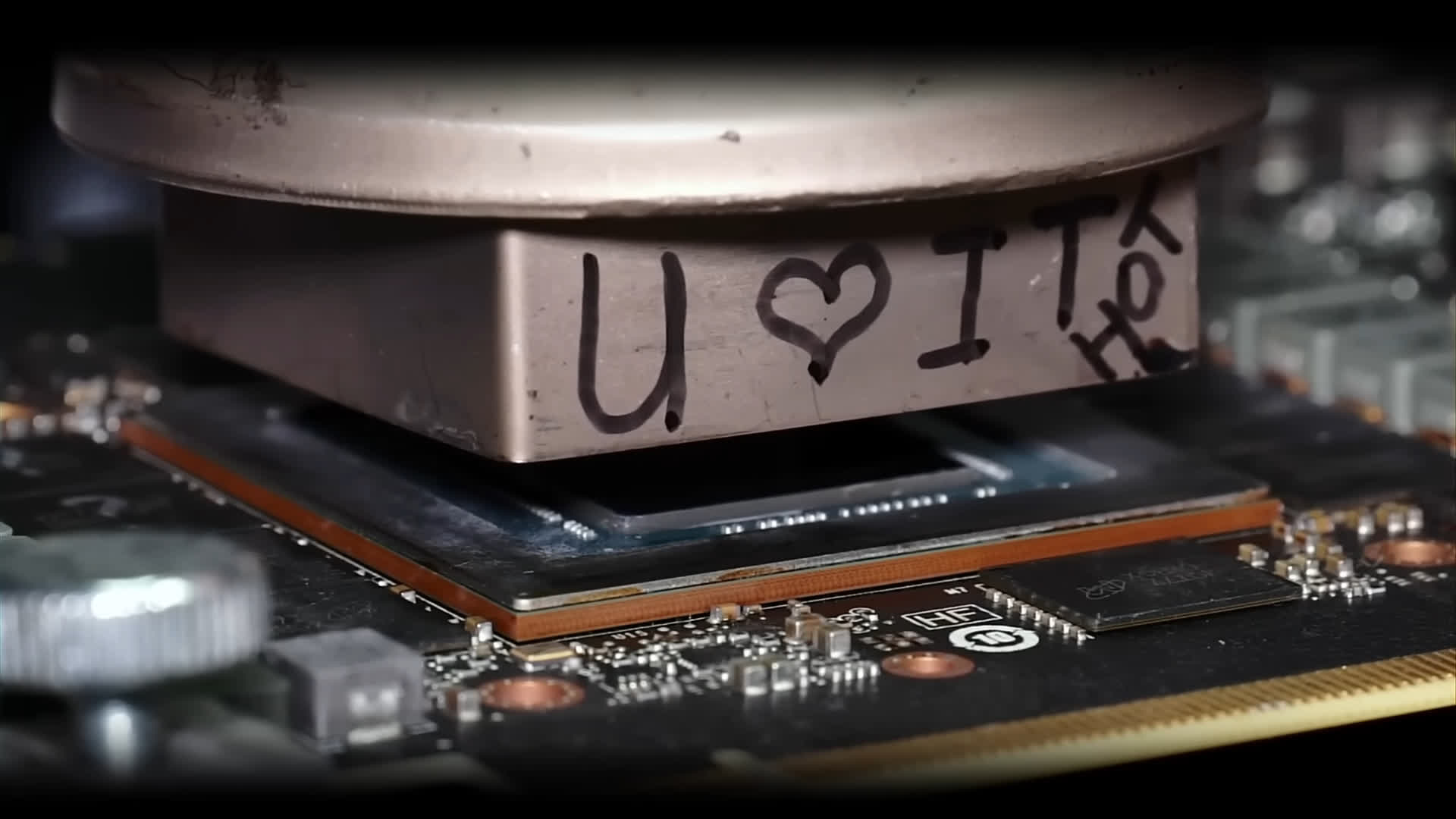Not for the faint of heart: Although using liquid metal on processors instead of thermal paste can significantly lower temperatures, one mistake during its application can lead to catastrophic damage. Fortunately, a repair show has demonstrated that damage from liquid metal isn't necessarily irreversible. However, repairing it requires a complex deep-cleaning procedure.
Northwest Repair recently showed how to clean spilled liquid metal from a failed GPU mod, a mishap that typically would kill the chip. This process is likely beyond the capabilities of most users, requiring extensive disassembly.
The repair shop worked on an RTX 3090 Founders Edition that malfunctioned after its owner attempted to add liquid metal to the card, which accidentally spilled under the core. Luckily, none of the card's components were irreparably damaged, but a film had to be cleaned from under the GPU and two of its memory modules.
The cleaning required heating the graphics card to over 200 degrees Celsius to detach the core and the affected memory modules. Then, using a toothbrush and a Q-tip coated with adhesive remover and flux, the board underneath was cleaned. Northwest Repair recommends performing the cleaning while the board is still hot.
Resoldering the GPU and memory involved applying a mix of unleaded and leaded solder, adding more flux, reballing the chips, reheating the board to attach them, and adjusting the memory modules' position. One of the memory modules required resetting twice, but the reassembled graphics card passed 3DMark and Unigine benchmarks, indicating a successful repair.
The owner likely attempted to apply liquid metal to reduce the GPU's operating temperature or to repair it. While thermal paste is commonly used when installing CPUs and sometimes modding graphics cards, liquid metal offers more effective but riskier cooling.
While thermal paste is designed to conduct heat, liquid metal also conducts electricity, enhancing cooling efficiency. TechSpot's benchmark comparing liquid metal with paste on a Core i9-9900K revealed that the former can lower temperatures by several degrees.
However, the electrical conductivity of liquid metal is a double-edged sword. Improperly applied thermal paste may reduce cooling efficiency, but spilled liquid metal can short-circuit a component or even an entire PC.
A significant portion of the PlayStation 5's large chassis is dedicated to its cooling system, which employs liquid metal. Last year, a repair technician suggested that positioning the console vertically – as often shown in promotional images – poses a risk of spilling the liquid metal and damaging the motherboard. Later the claim was discarded, but that didn't stop many owners from simply not taking the risk.
Most people applying aftermarket CPU coolers or modding GPUs are likely better off using thermal paste. Liquid metal cooling is best reserved for those with steady hands and the money or expertise for extensive refurbishing.
